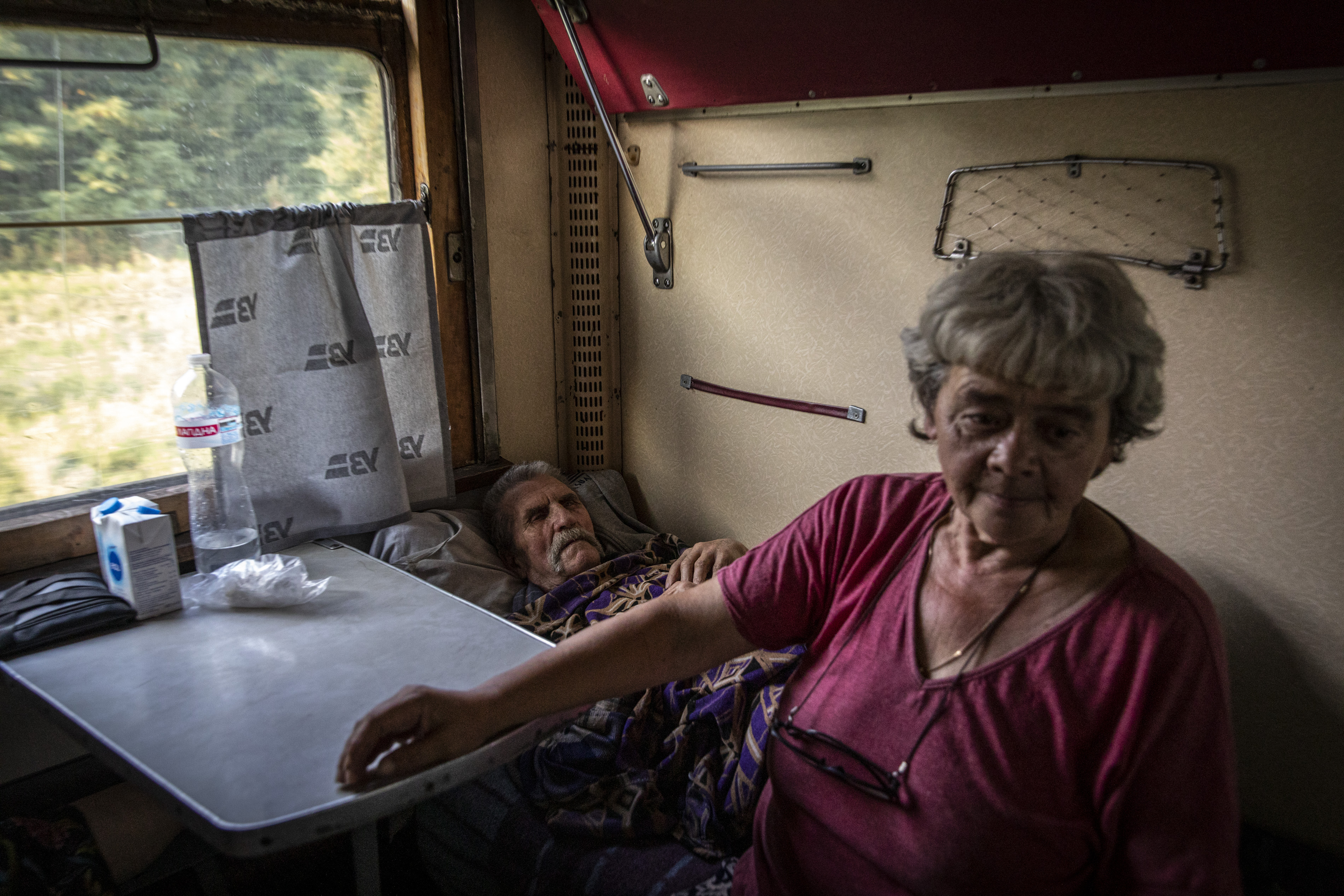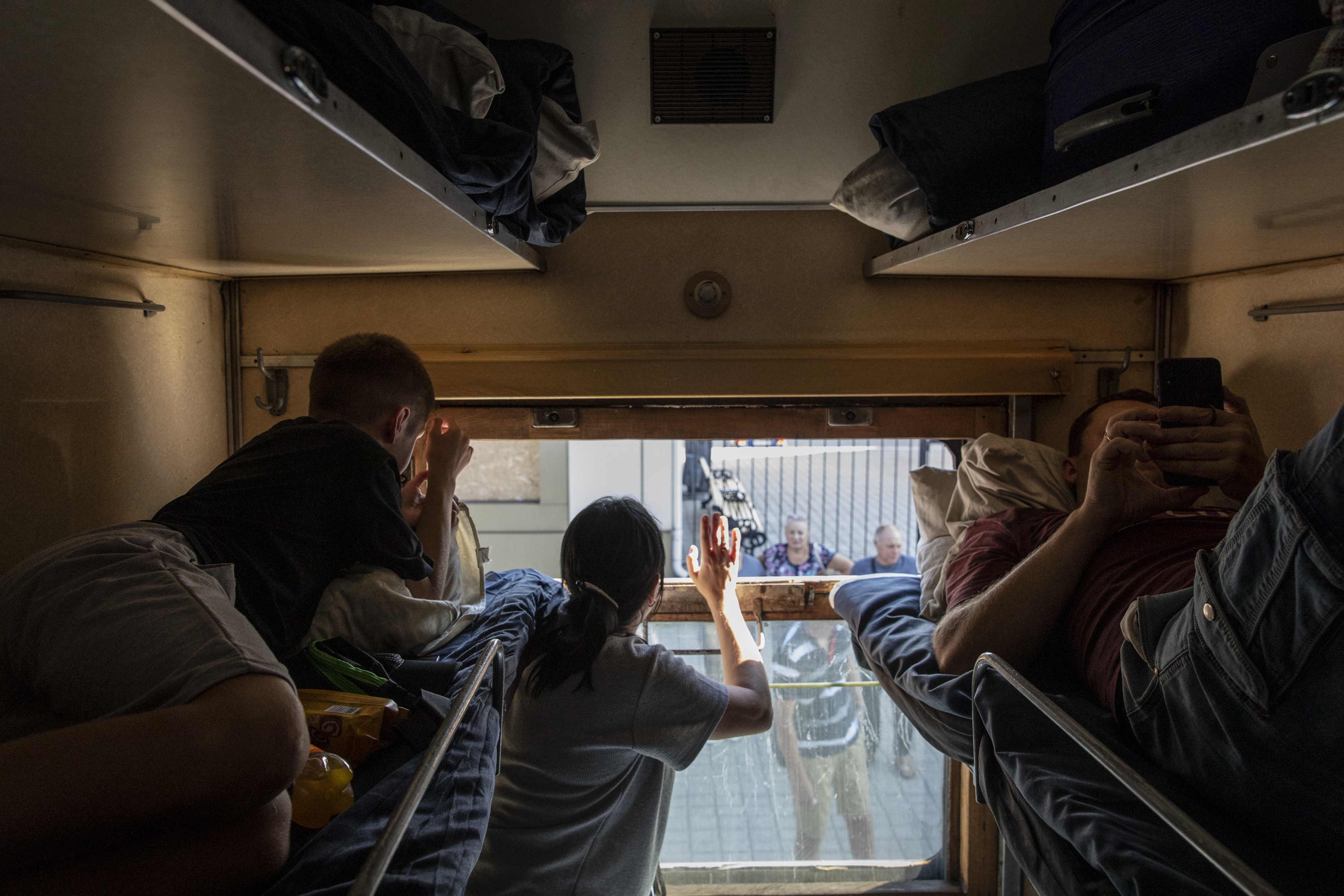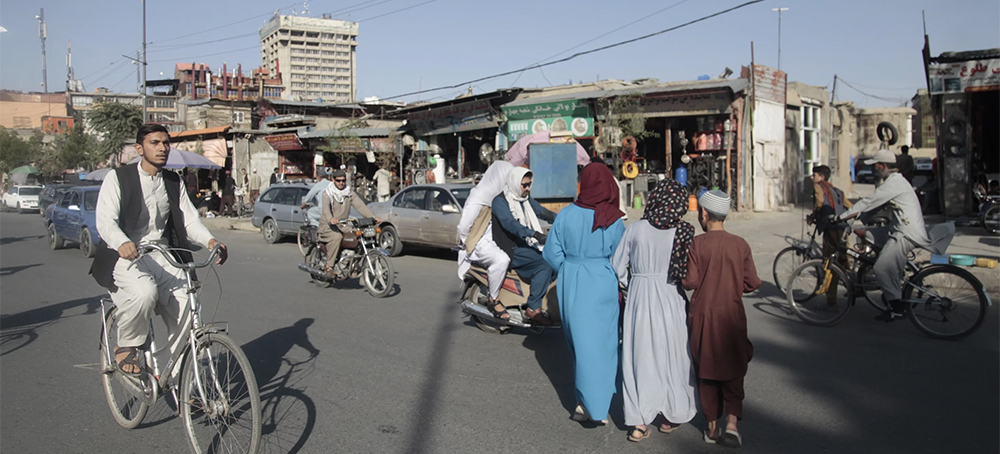Live on the homepage now!
Reader Supported News
What we as progressives have done, unique in modern history, is to make it clear that ordinary Americans are NOT content with the status quo. At a time when real wages for working people are lower today than they were almost 50 years ago and half our people live paycheck to paycheck, when tens of millions can't find affordable housing or health care or childcare, the working families of our country want change, REAL change. And that is a major threat to the establishment.
Poll after poll shows that the American people support our agenda: a livable minimum wage, Medicare for All, substantially lower drug prices, progressive taxation, and major federal investments in the needs of our children, housing, higher education, and climate change. In essence, they want a government that works for all, not just a few. And candidates who are running on these issues are winning.
In response to our success, the establishment is making a major effort to imply that the progressive movement is in decline, that our agenda is being rejected, and that all that the American people have a right to expect in the future are tiny, incremental steps forward.
Don't believe the establishment line for a second.
Over the past several months, progressive candidates across the country have won their congressional primaries, and are strongly favored to win again in November. Many of them have won their elections despite millions in billionaire-funded super PAC money being thrown against them. These are candidates who have the guts to challenge the status quo and fight for the working class. And their constituents are with them.
The truth is that, everything being equal, there will likely be more strong progressives in the U.S. House in January than at any time in modern history. Our movement is growing.
Today I'd like to introduce you to some of the progressive candidates who have already won their primaries. Some of them you likely already know, and others are running for Congress for the first time. While all of them are favored to win in November, we have to make certain that happens.
Jasmine Crockett (TX-30) is a Texas State Representative, a civil rights and criminal defense attorney, and founding member and Vice Chair of the Texas Progressive Caucus. When it comes to voting rights, standing up for working families, passing meaningful criminal justice reform, and being a pro-choice champion, Jasmine has always delivered.
Greg Casar (TX-35) is an Austin City Council Member and movement organizer who has supported working families from San Antonio to Hays County to East Austin. The proud son of Mexican immigrants, Greg has passed policies to protect families from being separated, raised wages for thousands of workers, and has successfully fought to expand civil rights protections.
Summer Lee (PA-12) is a dedicated organizer, attorney, and progressive state legislator who took on a 20-year incumbent, doubled voter turnout, and won. Throughout her time in office, she has been a champion for sustainable jobs, environmental justice, police accountability, reproductive rights, immigration rights, and gender and racial equity. She's a tireless advocate for workers’ rights, unions, and the right to organize.
Jonathan Jackson (IL-01) comes from a proud legacy of public service. He is the son of civil rights leader Rev. Jesse Jackson and he has a deep understanding of the struggle to fight for social change. He is ready to put Chicago's working class families first on the issues that matter most – from Medicare for All to a Green New Deal to telling the billionaire class that they cannot have it all.
Delia Ramirez (IL-03) is the daughter of working-class Guatemalan immigrants who saw the heartbreaking financial crises that her parents and many others in her community endured, hoping to provide a better life for their children. Now Delia is a state legislator, social service director, and community leader who has dedicated her life to advocating for working families.
Becca Balint (VT At-large) is a teacher, former union member, and president of the Vermont State Senate who has passed huge investments in affordable housing, protected reproductive rights, and has always strongly advocated for unions and working people. She understands the urgent need for our progressive movement to stand together in the fight for justice.
In addition to these new progressive candidates that we have supported, we are obviously working hard to protect incumbent progressives. The following incumbents, against strong corporate opposition, have already won their primaries.
Cori Bush (MO-01) is an activist, nurse, pastor, and community leader who is redefining what it means to be a member of Congress. She has lived the struggles regular, everyday people endure — from the impact of skyrocketing housing costs to payday lending to systemic racism in policing. Her mission is to do the very most for her community — starting with those who have the very least.
Rashida Tlaib (MI-12) is the proud daughter of Palestinian immigrants and grew up in a working-class family in southwest Detroit. She is a bold, transformative leader who fights for families of all backgrounds, especially those who’ve been left out and marginalized. In Congress, she is guided by the belief that everyone — not just the wealthy and privileged — deserves access to opportunity and a better quality of life.
Ilhan Omar (MN-05) is a leader of incredible courage. Since being elected to Congress in 2018, she has been a voice for the voiceless and a fierce advocate for working families and the millions of Americans who can’t afford to pay for lobbyists. She has led efforts in Congress on canceling student debt, providing school meals year-round to students, and protecting workers' rights.
There are a number of primary elections that have not yet taken place and, among others, we are working hard to support the following progressive champions.
Alexandria Ocasio-Cortez (NY-14) shocked the political establishment with her primary victory in 2018, and she has been a leader for our movement in Congress ever since. Her first piece of legislation was the Green New Deal Resolution to address the climate crisis and create millions of union jobs in the process. She has fought tirelessly to create a country that works for us all, not just a wealthy few.
Jamaal Bowman (NY-16) is a former teacher and principal who spent his early years in public housing and rent-controlled apartments. He has seen firsthand the results of inadequate housing, homelessness, mental health, the racist immigration system, the school to prison pipeline, and food deserts. These are the issues that motivated him to run for Congress.
Ayanna Pressley (MA-07) understood from a young age the role that government can play in lifting up families and communities, thanks to her mom who was a tenant rights organizer. Ayanna has taken that same bold, activist leadership to Congress where she is fighting to raise the wage from a starvation wage, reform our broken criminal justice system, and defend women's reproductive rights.
In the U.S. Senate we are strongly supporting Mandela Barnes who has an excellent chance to defeat one of the most reactionary members of the Senate.
Mandela Barnes (WI-SEN) is the son of a Milwaukee school teacher and General Motors worker. His parents were both active union members, and their example showed him the importance of demanding dignity on the job. In the Senate, Mandela can become the deciding vote to end the filibuster so we can finally pass transformative legislation that this country needs, and that the American people want.
We are living in an unprecedented moment in American history. Democrats in Washington must show that they have the courage to act boldly and decisively in addressing the multiple crises we face.
Now is the time to restore the faith of the American people that they have a government in this country that is working for them, not just the 1%.
That's why electing these progressive candidates is so important. These are candidates who understand that now is not the time to think small. It is the time to act aggressively to address the needs of the working class and to also address the many social and environmental crises we face.
Between now and November, I will be traveling the country to rally our people around an agenda that is based on economic justice, social justice, racial justice, and environmental justice. Starting next weekend, I will be holding two rallies in Philadelphia and Boston where I will be joined by Teamsters President Sean O'Brien and Sara Nelson, the President of the Association of Flight Attendants.
The rally in Philadelphia will take place at Independence Mall at 4pm ET on Saturday, August 20. Then the next day I will travel to Boston for another rally at Cambridge Common Park at 1pm ET on Sunday, August 21. If you live in those areas, we'd love to see you.
We must never stop fighting for the kind of nation we know we can become.
Thank you for all you've done, and will do, to carry our progressive movement forward.
In solidarity,
Bernie Sanders
 A firefighter walks on the ruins of a school destroyed by Russian rockets in Kramatorsk, Donetsk Oblast, on July 21, 2022. (photo: Alex Chan Tsz Yuk)
A firefighter walks on the ruins of a school destroyed by Russian rockets in Kramatorsk, Donetsk Oblast, on July 21, 2022. (photo: Alex Chan Tsz Yuk)
Russian forces have fired missiles and shells across the entire region, indiscriminately killing civilians en masse. Incessant strikes destroyed homes and flattened cities in Ukraine's industrial heartland, known as the Donbas.
With Russia having made limited territorial gains, its military keeps turning to its mass firepower to inflict more civilian casualties. Following Russia’s capture of Lysychansk in Luhansk Oblast in early July, triggering the fall of the entire province, Kremlin forces have focused on sealing gains in the rest of the Donbas, seizing approximately 78 percent of the region which encompasses Ukraine's Donetsk and Luhansk oblasts.
Now, in mid-August, a major battle is unfolding in Pisky, once a suburb of Russian-occupied Donetsk, with both Ukraine and Russia claiming to have control over parts of the embattled settlement. Heavy fighting is also occurring several kilometers north, in the town of Avdiivka, with Ukrainian positions being bombarded nonstop.
As the situation worsens, Ukraine carries out a mandatory evacuation from Donetsk Oblast. President Volodymyr Zelensky urged all remaining residents in the war-torn region to flee their homes.












“The sooner it is done, the more people leave Donetsk region now, the fewer people the Russian army will have time to kill," Zelensky said in an evening address on July 30.
Deputy Prime Minister Iryna Vereshchuk said on Aug. 11 that all people evacuated from front-line settlements will be provided with free housing and social guarantees. Vereshchuk added that, currently, mandatory evacuation is carried out only in Donetsk Oblast, but later it may be extended to other regions where the situation might get worse.
Donetsk Oblast Governor Pavlo Kyrylenko said on Aug. 12 that there is an estimated 350,000 people still living in the region – a fifth of the pre-war population of the Ukrainian-controlled parts of the oblast. The figure includes about 50,000 children, according to Kyrylo Tymoshenko, deputy head of the President's Office.
Life is grim for the remaining residents of Donetsk Oblast as Russia turns their hometowns into hotspots of the war. Many cities and towns have been cut off from electricity, gas, and running water. The remaining civilians often rely on humanitarian aid.
On Aug. 12, Russian forces launched air and artillery strikes on 11 settlements in the region, including Kramatorsk, Bakhmut, and Avdiivka, the police reported.
The police said that the attacks either destroyed or damaged 94 residential buildings, a kindergarten, a school, and two manufacturing plants. At least eight people were killed as a result of the attacks.
Governor Kyrylenko said that as of Aug. 14, at least 730 people have been killed and at least 1,890 others have been injured in Donetsk Oblast. But he emphasized that these are not final numbers since the casualties rate remains unclear in Russian-occupied Mariupol and Volnovakha which were flattened by Russian forces.
Local officials estimated that the number of civilian casualties in Mariupol could have reached 20,000 people.
 Ayman al-Zawahiri. (photo: Getty Images)
Ayman al-Zawahiri. (photo: Getty Images)
The Al Qaeda leader was reportedly killed in Afghanistan by a U.S. drone strike.
Zawahiri, reportedly killed in Afghanistan by a U.S. drone strike over the weekend, was a doctor—a highly educated professional who chose to devote himself to violent revolution. He formed his first cell, to overthrow the Egyptian government, when he was fifteen years old. In Al Qaeda, he provided the direction, and bin Laden supplied the money. Zawahiri was always in the background, and many people who studied Al Qaeda thought that bin Laden’s death would bring the curtain down on their creation.
And yet, after bin Laden’s death, Zawahiri held the organization together. Under his stewardship, the terror group grew from four hundred or so men on 9/11 to perhaps forty thousand today in Al Qaeda proper and its affiliates, which range from Morocco to India. Although Al Qaeda never had another attack comparable to 9/11, its intentions haven’t changed, its membership has grown, and, with the retreat by the U.S. and its allies from Afghanistan, Al Qaeda has regained its training ground. It is once again a force to be reckoned with. This is due in large part to Zawahiri.
 ‘The war in Ukraine, which has devastated a region of the world and displaced millions, has helped energy companies by driving oil and gas prices higher.' (photo: David Goldman/AP)
‘The war in Ukraine, which has devastated a region of the world and displaced millions, has helped energy companies by driving oil and gas prices higher.' (photo: David Goldman/AP)
No single crisis, no matter how existential, will be enough to shut this machine down naturally. We must break it or it will break us
Oil and gas profits in the most recent quarter were astounding. Exxon Mobil made $18bn in profits in the past three months. Shell and Chevron each made nearly $12bn. Those are all record numbers. More major companies will announce their figures this week, and they are all expected to be bountiful. The war in Ukraine, which has devastated a region of the world and displaced millions, has helped energy companies by driving oil and gas prices higher. In this, we see another key characteristic of the machine: the fortunes of nations may rise and fall, but the oil companies will always survive and thrive, floating above the chaos of the world like passengers on a private jet, shaking their heads performatively at all the problems below.
The price of oil fluctuates, but that short-term volatility masks the industry’s long-term certainty of success. A recent study showed that for the past 50 years, the oil industry has made profits of more than $1tn a year, close to $3bn a day. These profits are driven not by some fantasy of free enterprise and perfect competition, but by the exact opposite – cartels, mega-corporations and the regulatory capture of governments, conspiring to create a market free of both competition and of a price that reflects the actual cost to the world of the product that is being sold.
Fossil fuels make enough money to corrupt politicians, cause wars and bend public opinion through the brute force of a firehose of propaganda. The machine does not just extract and sell fossil fuels; it also concerns itself with ensuring that the entire world is arranged in a way conducive to maintaining the demand for those fossil fuels. The growth of oil profits even as the reality of climate change is burning before our eyes is proof that no single crisis, no matter how existential, will be enough to shut this machine down naturally. The machine must either be broken by us, or it will break us all.
Capitalism is not designed to look several generations down the road. It is not designed to sacrifice for the greater good. It is designed to maximize profits. To pump every last barrel of oil on Earth, sell it, take the money and build a luxurious space ship to leave the planet that has been destroyed by burning all of that gas is a perfectly rational course of action according to the logic of capitalism. As long as there is a trillion dollars a year to be made, the fossil fuel industry will take the money. It is enough money to build a nice villa far, far away from the wars and droughts and floods and wildfires that fossil fuels are causing.
These profits are illusory. They are plagued by an externality large enough to outweigh a trillion dollars a year – the costs that the climate crisis will impose on billions of people who are alive now and many generations to come. The fact that capitalism is unable to properly price a barrel of oil to account for all the pain it will cause to your grandchildren whose home is wiped out by rising seas is proof that the whole idea of an impartial system of costs and rewards for labor and risks is a big sham.
The fossil fuel industry as a whole is not just another business, providing a service to meet a demand; it is a predatory drug dealer that works every day to keep the world addicted to its poisonous product, knowing full well that it will eventually prove fatal. It fights to keep the population fooled about its costs, to keep the political power structure incapable of keeping the public safe from its damages, and to keep the flow of supply coming at full blast despite any human or environmental toll. It is not something to be applauded. It is a problem to be solved.
It’s no big mystery how to change this toxic dynamic. Merely putting a price on fossil fuel that accurately reflects its costs – for example, through a carbon tax – would do the trick, with time, as it rapidly became economically unfeasible to mortgage the health of the planet’s future on a carbon credit card. Better, and faster, would be straightforward regulations paired with enormous public investments to transition to cleaner energy sources, a la the Green New Deal. The barrier here is not ideas, but rather politics, backstopped with a wall of money. So long as America fails to regulate the influence of money in politics, we will by extension fail to adequately regulate fossil fuels.
It is folly to assume that a system that has been constructed in part by the corporate power of the energy industry will find a way to rein in that same industry against its wishes. It’s willfully stupid to imagine that electoral politics will be up to this task. This is an issue that is, more than most, begging for radicalism. It will take more than installing a solar panel on your roof. For older people with means, it will take agitating within each and every institution you are a part of to divest from the fossil fuel industry; for younger people with passion, it will take agitating in the streets. For all of us, it will take treating the tremendous but slow-moving threat of climate change with the deadly seriousness it deserves.
So next time you see young people sitting in at a senator’s office or blocking the streets or hollering at Joe Manchin’s yacht, don’t mock them. Join them. They will be living through a grim future long after all that sweet oil money has been spent.
 School library. (photo: DavidPinoPhotography/Shutterstock)
School library. (photo: DavidPinoPhotography/Shutterstock)
The self-dubbed Mama Bears filed a federal lawsuit alleging that by not being allowed to read sexually explicit material aloud at school board meetings, they themselves are being censored.
In essence, members of the group, which has dubbed itself the Mama Bears, are arguing that they’re being censored — in their own pursuit of censorship.
At a February school board meeting in Forsyth County, Georgia, Mama Bears member Alison Hair wanted to draw attention to a book that was available at her son’s middle school library, according to the lawsuit. Turning to a page from “Extremely Loud and Incredibly Close,” Jonathan Safran Foer’s 2005 novel about a 9-year-old boy whose father was killed in the 9/11 attacks, Hair began to read: “I know that you give someone a blow job by putting your penis ...”
That’s as far as she made it before Board of Education Chair Wesley McCall cut her off. He reminded her of “the rules that we talked about in the beginning” of the meeting concerning the board’s policy about “profane comments.” He also let her know that “we understand your point” and stated that the district already has a vetting system in place “so these books are not read out loud to students.”
Hair continued to try to speak during her allotted three minutes, asking that she be given back the time that McCall spent interrupting her. “Here’s what I’m here to tell you,” she said. “I am here to confront evil.”
McCall cut her off again: “Your time is up.”
Hair returned to the Forsyth School Board meeting the following month, again attempting to read from a book and again getting cut off. The board later sent her a letter banning her from school board meetings until she agreed to follow board policies: “It was clear that your intent was not to comment to the Board in the public forum but was to disrupt the meeting of the Board of Education to draw attention to yourself and your beliefs.”
The lawsuit, filed in late July by the Institute for Free Speech on behalf of Hair, Mama Bears of Forsyth County, and Mama Bears Chair Cindy Martin, claims that “the Forsyth County School Board, embarrassed by debate about its choices, has gone so far as to silence and banish from its meetings any parent who simply reads aloud from its schools’ library books.”
Del Kolde, a senior attorney with the Institute for Free Speech Institute who’s representing the plaintiffs, said of the lawsuit: “It’s not about censoring the books. It’s about reading from the books in a public setting. We don’t see any irony.”
“To me, the irony is if you’re putting books in the system, why can I not read them in a public setting?” Hair told ProPublica. “But again, this is not about books. This is about my right to speak to the school board about concerns that we have regarding our children.”
According to Kevin Goldberg, an attorney and First Amendment specialist with the nonprofit free-speech advocacy group Freedom Forum, “There’s at least some merit to the suit. The premise is valid.” (Forsyth County Schools Chief Communications Officer Jennifer Caracciolo said the district and school board could not comment on pending litigation; individual school board members did not respond to requests for comment.)
Goldberg points out that “the First Amendment provides a right for parents to petition.” And he notes that “the suit is not the first of its kind and likely won’t be the last, because it has legs.”
Below, Goldberg provides commentary on the lawsuit. ProPublica has provided relevant excerpts from the suit to give some additional context to Goldberg's analysis.
Lawsuit: Plaintiffs — mothers who wish to protect their young children from Defendants’ questionable choices — want to exercise their right to criticize the placement of pornographic books in school libraries by accurately reading those books aloud at public meetings. The books’ language, after all, best illustrates why the parents contend the books are inappropriate for school. Plaintiffs want to read these books aloud because they want to elicit in these elected officials, and in their fellow citizens participating in the debate, the same emotions that struck them when they first read these words; embarrassment and motivation to action. They want their audience, including elected board officials, to hear the jarring, unsettling, and sexually graphic words in their original medium. If Plaintiffs cannot read these excerpts, then the power of their message is lost, indeed, the message itself is censored.
Goldberg: Parents have a right — and frankly, we want them to have a right — to be able to speak during these meetings. They also have a right to speak as they want to speak, and that right should be very broad. That’s why I think this case has some merit.
Lawsuit: At the February 15, 2022 school board meeting, Defendant McCall adopted the practice of opening every Public Comment period by purporting to read from the Public Participation Policy though he added language that cannot be found in the policy. This spoken variation of the policy adds a new category of things the boards can censor: A reading from something “inappropriate.”
“We want to remind our citizens that public participation is to present issues or concerns to the Board” [the lawsuit quotes McCall as saying] “but in doing so we do not allow profane comments or comments which involve inappropriate public subjects. If your comments include anything that you might read tonight is … inappropriate to being stated in public you will be instructed to stop.”
Goldberg: The policy as written is problematic, I think, from a First Amendment point of view. But certainly when you go off script, it raises a host of First Amendment problems, primarily because it tends to be vague.
The biggest problem with vagueness is that I don’t know how to moderate or calculate my speech, which means I’m likely to self-censor to not get in trouble. That is a clear First Amendment violation.
Vagueness also leads to selective enforcement. What we end up seeing here is one side being told to be quiet because they’re being inappropriate or disruptive.
Lawsuit: Protecting the innocence of Forsyth County’s children is central to Mama Bears and its members. Barring the availability of pornographic materials in school libraries is among the group’s chief concerns. …
The Mama Bears have identified over one hundred books they believe are inappropriate.
Goldberg: A stated purpose of their exercising their First Amendment right in this issue is to bar the availability of pornographic materials in school libraries. But pornography is protected by the First Amendment, and there’s no clear evidence that any of these materials are actually pornographic.
The First Amendment right of the parents is absolutely necessary for them to speak, to be a part of the process. It’s what makes the process work. It’s what helps us come to a final decision. But the parents should not be making that decision. The parents should not be imposing that decision. And that’s my real concern, that when they are imposing their decisions, their preferences on everybody else, we run into another First Amendment problem. They are now seeking to use the process to restrict the First Amendment rights of other parents.
Lawsuit: On March 17, 2022 Wes McCall sent Hair a letter banning her from attending future public meetings until she provided a guarantee in writing that she would follow the public participation rules and his directives. …
Though Hair did not attend any meetings after March 15, on May 11, 2022, the full FCS Board sent Hair a second letter, signed by each individual defendant Board member, confirming that she is banned from attending public meetings.
Goldberg: I would hope that they [the school board members] would be pushing to keep as many of these books in the library as possible, but they are at the same time shutting down speech.
Cohen v. California was a really fun and interesting case from the Supreme Court that was decided about 50 years ago. It’s best known as the “fuck the draft” case, where the guy wears the jacket in the L.A. County Courthouse that says “fuck the draft” on the back.
The court said, look, I mean, one man’s vulgarity is another man’s lyric. If you don’t like it, avert your eyes. We do not think that the mere presence of bad words is sufficient to punish somebody.
Well, I think that applies here. If you can use the words “fuck the draft” in a courthouse, you can use them in a school board meeting.
 Kabul is awash in men and boys on rickety bicycles, because they can no longer afford the price of a bus ticket or a taxi. (photo: Diaa Hadid/NPR)
Kabul is awash in men and boys on rickety bicycles, because they can no longer afford the price of a bus ticket or a taxi. (photo: Diaa Hadid/NPR)
Now, a year later, the Taliban preside over a divided country with a battered economy, where hunger is rampant and human rights are assaulted; a country that aid groups fear has receded in the rearview mirror of the West.
Yet for the Taliban's loyalists and fighters, there is much to celebrate.
"This is freedom. This is real freedom. The invaders are gone, and now we have true Islam," says Ahmed Shah, a 40-year-old Taliban supporter.
After two decades of insurgency, the Taliban exhausted the world's most powerful military and their NATO allies, which agreed to withdraw from the country in a deal signed in February 2020. As Western troops were concluding their withdrawal last summer, the Taliban oversaw the rapid surrender, defeat or co-option of Afghan security forces — forces they saw as aiding a foreign occupation.
Today, the Taliban's particular interpretation of Islamic law is being imposed in fits and starts, largely over women and girls: Most girls cannot attend secondary schools. They may not travel long distances without a male guardian. Women report being hounded out of their jobs. They've been ordered to cover their faces in public, although the rule is only applied to women on television so far.
There are changes perhaps less noticed outside of Afghanistan: Afghans are living in relative security for the first time in decades. Aid groups reach areas that were previously off-limits. Primary-age boys and girls are attending schools in greater numbers, because it is now safe for them to go. "Of course, it's very cynical of the Taliban to say: We brought peace, I was shooting at you and now I stopped shooting at you," retorted a Western official who closely follows the Taliban, and who requested anonymity so he could speak freely.
The Taliban have raised some $2.5 billion through customs revenue and mining. They're shipping so much coal to Pakistan that there's a truck shortage. "They're working on energy and infrastructure projects in a way that looks like it's moving better and faster than under the Republic," said the Western official, referring to the former Afghan government.
Families are left to grieve those killed in the war
Ahmad Shah's family paid dearly in service of the Taliban's victory.
Two of his brothers, Taliban fighters, were killed six years ago by a drone strike after ambushing Afghan forces. His cousin, another Taliban fighter, was also killed.
Shah lives in the village of Patan Khel, roughly 75 miles southwest of Kabul. To get there, our vehicle juddered over enormous potholes, caused by explosives planted by the Taliban over two decades to strike their foes. The road is flanked by graves of fighters on rocky hills, marked with small flags hoisted on poles: white flags, green, red, even leopard print. The colorful cloth signifies a man who died young.
We veered off the highway and drove through mudbrick villages of the Shneez valley to reach Shah. Over lunch of bread and yogurt, he said when the Taliban took over Afghanistan last year, villagers saw divine intervention. "It was not possible but with the help of God."
Shah says villagers would fight for the Taliban again if they have to. For now though, their rivals are defeated.
Around Patan Khel, the families whose sons fought the Taliban have fled, fearing retribution. We ask Shah if he thinks those families grieve their slain sons, as he grieves his brothers.
Shah says he thinks they grieve more.
"I'm sure those people feel more pain than us because we lost our men fighting for the sake of Islam and Afghanistan, so we are comforted by that. What did their men die for?"
The words sting Mohammad Qassim, who we meet in a nearby market town. He was the oldest of six brothers. Now, they are four.
The brothers lost their father when they were young, and Qassim became a veterinary pharmacist to support the family. His brother joined the army for the same reason, and paid with his life — he was killed last year by an explosive planted near a checkpoint. "He was my beloved brother. He was the backbone of this family," Qassim weeps.
Qassim said his youngest brother didn't understand the sacrifices they made — and ran away to join the Taliban. Shortly afterwards, he was killed in a drone strike.
"The war has bought us disaster," Qassim says. "In our village, you will see widows and orphans. Their fathers were killed in the fighting. Now they're destitute."
As the Taliban took power, Western countries cut off aid
That destitution is palpably seen across Afghanistan, which was plunged into crisis after the Taliban seized power. Western aid that propped up the former Afghan government was cut off. Sanctions on Taliban leaders — now in government — dried up most international trade and banking. Washington froze Afghanistan's central bank assets held in the U.S.
Within weeks, businesses shut down, banks stopped money withdrawals, salaries couldn't be paid, and mothers began presenting to hospitals with starving babies.
Even for experts who track malnutrition, "what happened after August was really surprising," said Hsiao-Wei Lee, deputy director for the World Food Program in Afghanistan. She spoke to NPR in July. Afghans needing food aid roughly doubled to 20 million people, about half the population. Around 6.6 million need urgent assistance to survive.
Charity, big and small, keeps many Afghans going.
In Kabul, women, mostly enveloped in blue burqas, gather outside bakeries in upscale areas, hoping passersby will give them bread. Dust-smeared boys and girls bang on car windows in traffic jams for money. On the pavement, elderly men and women wait quietly for change.
Laborers often curl up in their wheelbarrows on the roadside, waiting for work that never seems to come. The city is awash in men and boys on rickety bicycles, because they can no longer afford the price of a bus ticket or a taxi.
"My business is good when the economy is bad," shrugs Tawfik Shirzad, a 25-year-old bicycle seller. "It doesn't make me happy. I see people who have lost their livelihoods, and they are buying a bike because they can't afford another way of getting about."
But it is still freedom, one 19-year-old Afghan woman noted. She couldn't be named because she is awaiting asylum in the U.S. due to threats against her family. Under the previous Western-backed government, she had defied conservative tradition to ride her bike to school. "They can do everything they want. But we can't. Like you see boys can go to school, but we can't."
Much of Afghanistan's economic woes, at least, are not only the Taliban's fault.
"The sanctions that have been placed on the Taliban," says Samira Sayed Rahman of the International Rescue Committee, are meant to hurt "a few hundred people in power. But 38 million people are suffering," she says, referring to Afghanistan's population.
While the U.N. has spent some $4 billion on Afghanistan since the takeover, it is less than half of the U.N.'s appeal for Afghanistan this year, said Ramiz Alakbarov, the U.N.'s resident and humanitarian coordinator in Afghanistan.
Alakbarov says it's a struggle to raise more, because relations between the Taliban government and Western countries are badly frayed. Western representatives accuse the Taliban of breaking pledges they made after they seized power.
Girls are still forced out of school
The most totemic of those pledges was the Taliban's promise to allow girls to return to secondary school on March 23 of this year. That decision was abruptly reversed after a last-minute huddle of senior officials with the Taliban's supreme leader.
Thousands of girls had already turned up to their old classrooms, only to be told to go home. Many left in tears. A lucky few study in secret schools — like the one run by a woman barely older than her students on Kabul's outskirts.
"Specifically, the broken promises on girls going back to school has really taken the international community aback," says Alakbarov of the U.N. "Donors have been watching that space very, very carefully. If the girls were back to school now," he says, alongside lifting other restrictions on women and the media, "there would have been a greater enthusiasm."
Most Taliban loyalists who have spoken to NPR say they don't agree with the ban, from Shah in Patan Khel, to turbaned bureaucrats in Kabul. Taliban-loyal clerics have criticized the ban as un-Islamic.
Yet the ban endures. It signals the ascendancy of what appears to be a hardline minority among the Taliban's most senior men, including the supreme leader himself. He is unlikely to be defied in a group that prizes consensus above all else.
Fraying the relationship between the Taliban government and the international community even further, in late July a U.S. drone struck al-Qaida leader Ayman al-Zawahiri in a house in a Kabul suburb. He was there despite a promise by the Taliban to not harbor militants seeking to harm America's security. Taliban spokesmen say they were not aware of his presence in the country.
It is hard to know what Afghans think of all this.
Nearly half of Afghanistan's local media outlets have shut down since the takeover. Critics of the Taliban have been muzzled. It is only a small group of Afghan women who still loudly protest, at a steep price of detention and beatings.
On Saturday, those women — about two dozen in all — marched down a Kabul main street. They shouted, "Bread! Work! Freedom!" Within minutes, Taliban security forces detained several Afghan and foreign journalists covering the protest. Then in a crackling burst of fire, several Taliban gunmen fired over the women's heads to disperse them.
Still, one woman whom NPR reached after the demonstration was defiant.
"After a year of this government, there is no change in the situation. We are showing that we won't stay silent," she said. "It's important to show the world that Afghans don't accept this. We will stand against injustice. We don't consent."
 A burger from Mosa Meat, a cell-cultured meat company in the Netherlands. Cell-cultured meat is made by growing animal cells in bioreactors rather than raising animals on farms. (photo: Courtesy of Mosa Meat)
A burger from Mosa Meat, a cell-cultured meat company in the Netherlands. Cell-cultured meat is made by growing animal cells in bioreactors rather than raising animals on farms. (photo: Courtesy of Mosa Meat)
The historic climate legislation is a missed opportunity to cut food emissions, but it can show us how to navigate the messy politics of meat.
But the bill will do little to cut emissions from agriculture, one of the most neglected sources of the greenhouse gases methane and carbon dioxide.
Our food system accounts for 11 percent of US greenhouse gas emissions, but just a little over 5 percent of the IRA’s spending is allocated to changing farming practices, according to the Congressional Research Service. And that spending ignores agriculture’s biggest climate culprit: meat and dairy production.
Most of the money allocated for agriculture will pay farmers to employ what the USDA has dubbed “climate-smart” farming practices. But according to NYU environmental studies professor Matthew Hayek and Harvard Law policy fellow Jan Dutkiewicz, those supported practices may not be all that climate-smart, as they’re unlikely to make much of a dent in emissions.
Those measures include improving soil health, reducing water contamination, and protecting pollinators and native plants. They’re good, commonsense practices, to be sure, but ones that won’t meaningfully reduce agriculture emissions. Food waste is another major source of agricultural emissions, but the law does not address it.
The IRA will also incentivize farmers to produce even more crops for biofuels, an inefficient way to reduce carbon emissions that takes up land that could be used for food (or just left alone to sequester carbon).
Even though the money to cut emissions from agriculture is misplaced, the strategy — hand out money to do the right thing rather than penalize polluters for doing the wrong thing — is politically smart, and in keeping with the bill’s carrot rather than stick approach to energy. This approach is projected to cut US greenhouse gas emissions by an astounding 40 percent below 2005 levels by 2030.
Agriculture emissions aren’t a sideshow: Climate researchers say that even if we stopped using fossil fuels tomorrow, we won’t be able to meet the Paris climate agreement’s targets without shrinking food’s carbon footprint too. But the relative success of shrinking the carbon footprint of energy shows a potential path forward for agriculture.
Just like the environmental movement had for decades, the effort to shift our meat-centric food system to a more plant-based one has historically focused on the stick approach: suing farms for pollution, banning the cage confinement of hens and pigs, and even floating the concept of a tax on meat consumption (as I have done).
That approach has a lot of merit. Factory farms directly hurt people and animals, and regulatory efforts are, at their best, alleviating some of that suffering. At their least, they can build public support for a life and death issue that is too often ignored.
Given the fraught politics around meat in America, though, handing out carrots in Congress might be a more politically effective path to reforming the factory farming industry, the emissions that it spews, and the suffering it creates.
But if you thought winning transformational climate legislation was tough, overhauling America’s meat industry is going to be a whole lot harder.
Meat: The third rail of climate politics
Meat has long been central not just to the American diet, but to American identity. So too has abundant, cheap energy, but it doesn’t have quite the same cultural salience in our everyday lives.
When you plug your phone charger into an outlet, it’ll charge all the same whether your electricity source is coal or wind. At the point of consumption, an electron is an electron is an electron.
But for most people, there’s still a large gap in taste and cost between a factory-farmed chicken cutlet and the best plant-based meat alternative or a tasty plant-based meal made from scratch. And taste and cost aren’t everything; eating habits are also shaped by culinary traditions and social environment. Overcoming those won’t be easy.
Americans have come to expect cheap meat and lots of it. And that meat is so cheap because there’s little regulation — and weak regulatory enforcement — of the industry’s emissions, mistreatment of animals, air and water pollution, and labor violations.
Pricing those largely unpriced costs would surely raise the cost of meat — a political nonstarter for even some of Washington’s most progressive lawmakers (with a few exceptions). But even if there were sufficient political courage to face down Big Meat, there would be major political consequences; meat producers have a big presence in DC, with Tyson Foods spending more on lobbying, proportional to its revenue, than Exxon.
Outside the US, when that courage is exercised, it’s usually met with fierce opposition, which is playing out right now in the Netherlands as farmers jam up highways in protest of policymakers who want to limit livestock herds in order to reduce nitrogen pollution. Similar food fights have occurred in Spain, Italy, and France. Germany is a rare exception, where government ministers have called for a reduction in meat consumption with little pushback.
It’s why Alex Smith at the technology-focused environmental group the Breakthrough Institute has called meat “the third rail of climate politics.” But he says there may be a way out, and it’s through the meat vortex.
Using carrots for a more plant-based food system
To be clear, there is no actual meat vortex. It’s a play on the “green vortex,” a term coined by Atlantic writer Robinson Meyer when he observed that climate change policy becomes easier to pass and enforce as green technology gets better and cheaper.
When the choice is between cheap coal and expensive renewable energy, the better choice for the climate looks like a financial sacrifice. But as the price of renewable energy falls, so does political and cultural resistance to it. Smith says that could happen with meat as plant-based alternatives level up.
The Good Food Institute (GFI), an organization that advocates for plant-based and cell-cultured meat, has a plan to take us through the vortex. It starts with the National Science Foundation and the USDA awarding $1 billion in R&D grants to researchers — for context, that amount would be equivalent to just 5 percent of the IRA’s agriculture spending.
The organization also has a lot of ideas on how that money could be spent to improve plant-based meat, such as breeding higher protein crops and improving the fat profile of plants. And there’s no shortage of research to conduct around cell-cultured meat: meat made by growing animal cells in bioreactors, which is still in its infancy.
They’d also like to see $1 billion go to funding a network of alternative protein centers at universities, not unlike the land-grant university system that helped build today’s hyperefficient (though incredibly destructive) agriculture industry over decades by funding research and training the agricultural workforce.
Funding alternative protein research has already gained some momentum, propelled by groups like GFI and New Harvest; the USDA, the National Science Foundation, and the California legislature have all awarded small grants.
This argument has its skeptics. There has been a sense of fatalism in the air lately around the prospects of plant-based meat and dairy as sales stalled in 2021 after years of rapid growth, and some trials of plant-based meats at major fast-food franchises haven’t panned out as hoped.
But it’s only been a few years since the sector captured the public’s imagination as to what an alternative meat system could look and taste like. For decades, renewable energy was also seen as an impractical replacement, before costs began to drop drastically. Smith says it’s far too soon to count the meatless meat industry out.
“It’s not a commercial industry yet, so we can’t really talk about its death yet,” he said. “We have these basic plant-based alternatives, but we really don’t have great alternatives yet. We don’t have [products] that are jumping off the shelves because they’re just so good.”
Chloe Waterman at the environmental group Friends of the Earth says the government could also wield its multibillion-dollar food budget for good.
One place to start is in schools, where USDA policy strongly favors animal products. Schools are mandated to offer cow’s milk, and in 2019, over two-thirds of the $1.3 billion spent on school food through the USDA Foods program went toward animal products, accounting for virtually all of the program’s emissions.
Schools are making those orders, Waterman says, but there are few plant-based options for them to choose from. When schools do want to serve more plant-based food, there are a host of technical, financial, and regulatory barriers in their way.
The group recently scored a small win on this front: a child nutrition bill, which just passed out of a House committee, included a provision of $10 million in grants for schools that want to serve more plant-based food. Waterman said it’s “the first federal bill to make it through a committee that has referred to plant-based food.”
Some cafeterias at federal institutions, like hospitals, prisons, and military bases, have taken recent interest in serving more plant-based food.
Against the enormity of pollution and suffering wrought by American factory farming, money for R&D and more variety in school meals feels woefully insufficient. And it is. But for the foreseeable future, these kinds of “quiet climate policy” measures, as Smith describes them, are probably the best we could expect from Congress.
At least for now, we can find hope in the local policymakers, from San Diego to New York to Washington, DC, who’ve committed to cutting their cities’ food emissions by serving up more plant-based meals. Somehow, they’ve figured out how to enter the meat vortex and make it out alive — and deliver truly climate-smart food policy.
Follow us on facebook and twitter!
PO Box 2043 / Citrus Heights, CA 95611



No comments:
Post a Comment
Note: Only a member of this blog may post a comment.